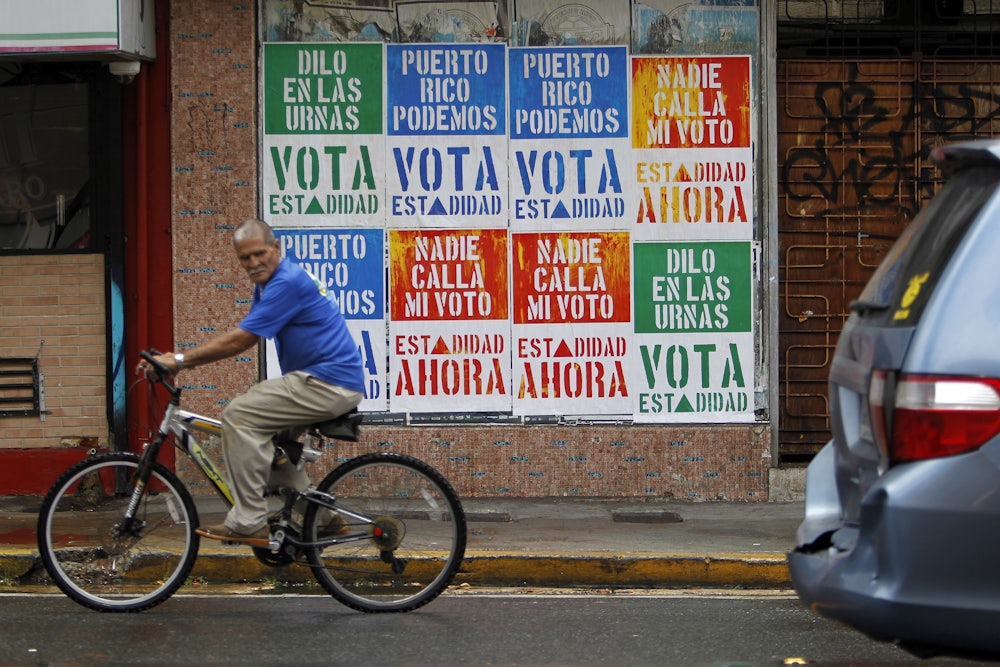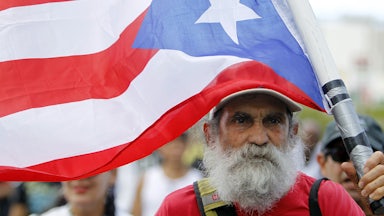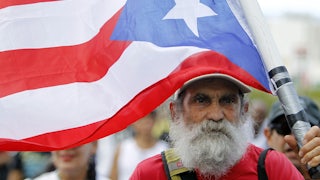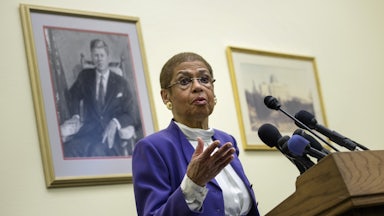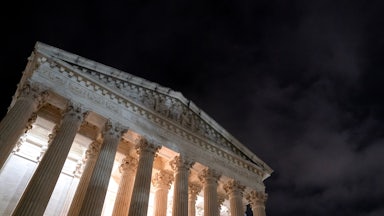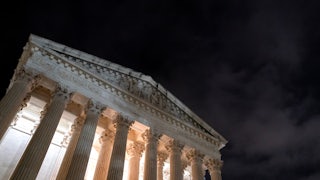Statehood for the District of Columbia has become a live issue in recent weeks. House Democrats recently passed, again, a bill that would make D.C. America’s fifty-first state—a move that the Biden administration has characterized as an important step forward for democratic reform and civil rights and which Republicans have characterized as the coming end of the republic. But there’s also another statehood push in the works. Earlier this month, the House heard testimony on the status of Puerto Rico, which is the subject of not one but two bills before Congress: the “Puerto Rico Statehood Admission Act” and the “Puerto Rico Self-Determination Act of 2021.” Both are supported by broad coalitions of Democrats; the latter is backed by New York Congresswomen Nydia Velázquez and Alexandria Ocasio-Cortez and a broad array of progressive organizations. The differences between the two measures speak to the complexity of the status question, which, given current conditions in Congress, won’t likely be resolved anytime soon.
It’s hardly a resolved matter outside of Washington, either. Puerto Rico, a territory without a vote in Congress or our presidential general elections, has held six nonbinding referendums since 1967 on changing its status. Statehood has won the last three, including one on Election Day in November that saw statehood garner a 52.5 percent majority of the vote. Unlike the last such referendum in 2017, November’s vote saw a majority—or about 55 percent—of the island’s registered voters turn out to cast an up or down vote on the statehood question. Previous referendums had offered residents a choice between statehood, some version of Puerto Rico’s current commonwealth status, a nonterritorial “free association” with the United States, and full independence. But even November’s turnout and result suggest that the island remains fairly divided on the issue, and critics of the statehood push have found fault with the way the New Progressive Party has used referendums to boost support for its candidates at the polls.
Contrary to the implications of its name, the New Progressive Party includes conservative statehood backers and Trumpian figures like Puerto Rico’s nonvoting representative in Congress, Resident Commissioner Jenniffer González. And statehood has been supported by Republicans here on the mainland for years: George H.W. Bush declared his support for the idea during a State of the Union address way back in 1989, and statehood was part of the Republican Party’s 2016 and 2020 platforms. But that support has frayed dramatically with the right’s turn toward racial demagoguery and growing progressive interest in Puerto Rican statehood as a move that might, like D.C. statehood, help bring ideological balance to Congress and the Electoral College. Senate Minority Leader Mitch McConnell called statehood for the island a step toward “full-bore socialism” in 2019, and recent polling has shown at least a plurality of Republican voters opposes the idea—this despite the fact that the island’s party politics suggest Republicans could be competitive in at least House and Senate elections.
But that’s a wholly speculative matter for now; again, the two bills in Congress on Puerto Rico reflect a deep divide among Democrats over how even to begin to approach the status question. The Self-Determination Act calls for a new “status convention” on the island, in which delegates would be appointed to consider, as Velázquez and Ocasio-Cortez wrote jointly in August, either “statehood, independence, free association or any option other than the current territorial arrangement.” The convention’s proposals would then be voted on in another referendum and submitted to Congress. The Admission Act, on the other hand, would bring Puerto Rico to a final and binding up or down vote on statehood, which the bill’s advocates argue Puerto Ricans have already demonstrated a clear preference for in referendums and polling.
Columbia law professor Christina Ponsa-Kraus, who testified on behalf of the Admission Act earlier this month, argues too that the language of the Self-Determination Act overcomplicates the status question and might mislead Puerto Ricans into believing that there are undiscovered options on the table for resolving it. “It’s that any other option language that is a problem because it’s based on the premise that there are other nonterritorial options when the fact is that there aren’t,” she said in an interview with The New Republic. “The nonterritorial options are statehood and independence, and independence itself can come with or without free association—some people call it a third option. Basically, that’s it. Anything that isn’t one of those three things is territorial, which is what we just spent 70 years fighting each other about.”
Both camps are eager to avoid charges that their solutions would perpetuate American colonialism. And a small but vociferous faction of independence advocates continues to argue that support for that option has been constrained by economic exploitation and the repression of activists. “Prior to 1967 and the emergence of the New Progressive Party, you see a history of violent suppression of the burgeoning independence movement, with lawmakers even going so far as to create a gag law in 1948, ‘la ley de la mordaza,’” Puerto Rico–based journalist and poet Miguel Machado wrote in November. “This made it a crime to speak, write, or hold assembly in favor of independence. Under these conditions, it is understandable how an atmosphere favorable to statehood emerged and has persisted for decades.”
“To understand the appeal of statehood, you must understand the current state of life in Puerto Rico and why the commonwealth’s current status is unsustainable,” he continued. “According to the 2019 census, 43.1 percent of people on the island live in poverty. The same census puts the national rate of poverty in the U.S. at just 10.5 percent—a striking difference. Furthermore, many of these households depend on programs funded directly by the U.S., from food stamps to Medicaid.”
But the U.S. has been far from a reliable friend and partner to the island. Our record of abuses and neglect stretches from the Insular Cases, in which the Supreme Court denied that Puerto Ricans could be governed “according to Anglo-Saxon principles,” to the shameful response to Hurricane Maria and the imposition of fiscal austerity on the island by an unelected federal board during the Obama administration.
Nevertheless, Democrats are plainly in no great hurry to move the island forward. While President Biden offered support for statehood as a candidate, the administration isn’t pressing the issue and Senate Majority Leader Chuck Schumer has straightforwardly rejected the Admission Act, citing divisions on the island and tax issues. And even the Self-Determination Act, like most of the Biden administration’s agenda, would be dead in the water if it ever made it to the Senate, given the legislative filibuster and Republican opposition. The divisions among Puerto Ricans on the status question are real, but most would likely agree on at least one thing: Puerto Rico’s status quo is yet another affront to democratic principles that history will judge the Democratic Party harshly for leaving unaddressed.
